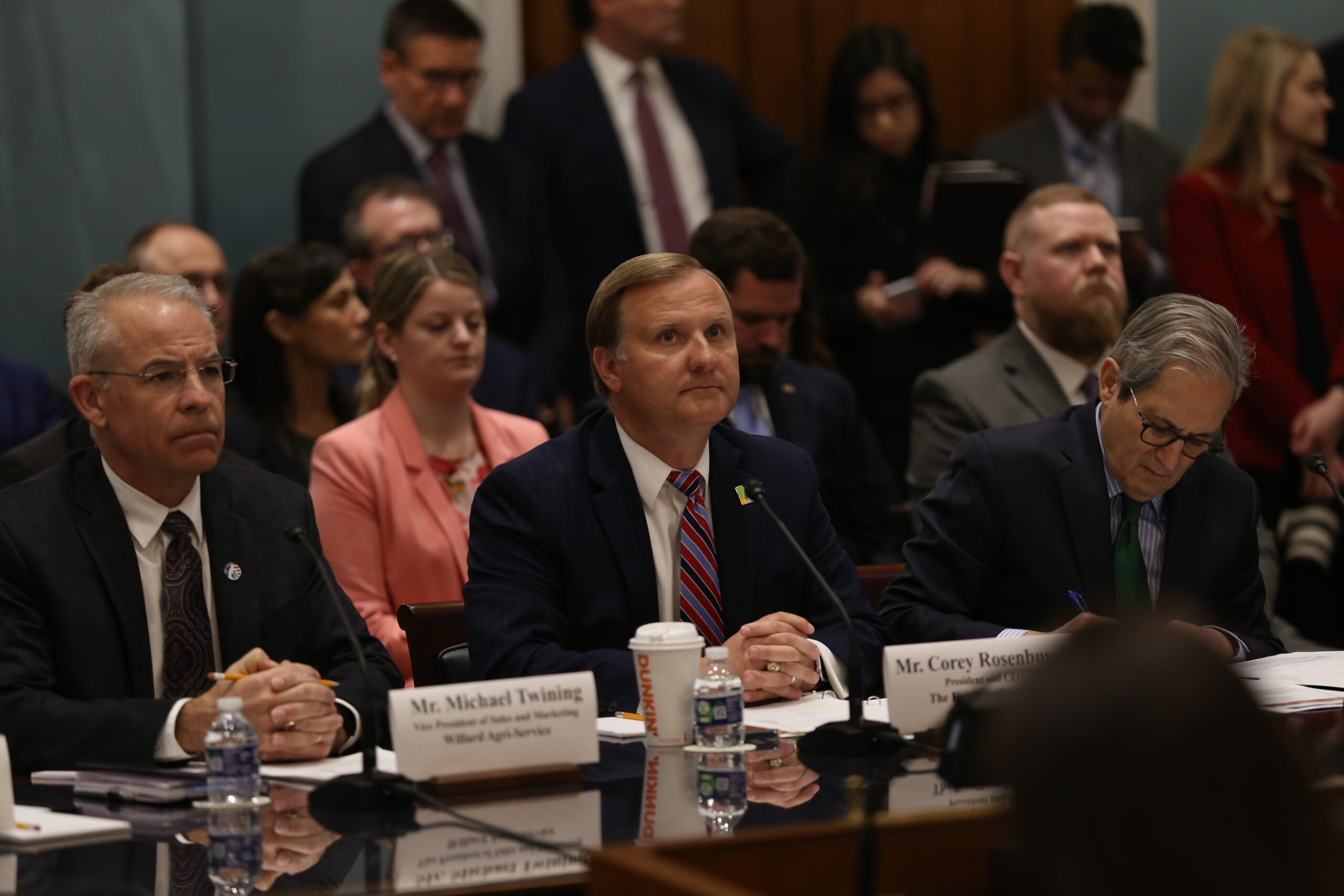
“If there is one thing you take away from my comments, it is this: Fertilizer is a globally traded commodity, subject to international pressures and geopolitical events.” This emphatic statement was made by TFI president and CEO Corey Rosenbusch while testifying at a House Committee on Agriculture hearing on February 28th. The hearing, titled “Uncertainty, Inflation, Regulations: Challenges for American Agriculture,” lasted nearly 5 hours and focused heavily on market dynamics of the fertilizer industry and pressures currently facing the U.S. agricultural sector at large.
When asked what Congress can do to help ensure farmers continue to have access to a stable source of fertilizers, Rosenbusch pointed to the need for regulatory certainty as many factors affecting the fertilizer market are out of the control of Congress. Those factors include the international pressures and geopolitical events mentioned by Corey early in his testimony.
Prime examples of those factors are sanctions on Belarus, which supplies 20% of the world’s potash supply; China, which is a major exporter of fertilizers, but has imposed restrictions on fertilizer exports; and Russia, which has historically provided 20% of global fertilizer supplies as the world’s largest fertilizer exporter. “Domestic production of fertilizer accounts for only 7% of global production and 90% of all fertilizer usage happens outside of the United States,” Rosenbusch explained. “Geopolitical events have been the biggest disrupter to fertilizer markets in recent years.”
Energy policy is another area where Congress can provide relief by ensuring that fertilizer producers have an abundant and affordable supply of natural gas. Rosenbusch highlighted the fact that when Russia restricted much of Europe’s natural gas supply last year, approximately 70% of European nitrogen fertilizer production shutdown, leading to additionally market volatility.
The market news wasn’t all bad, though. Rosenbusch pointed out that in recent months fertilizer input costs have come down. European nitrogen plants have restarted as natural gas prices have moderated following a mild winter and China has been slowly exporting more fertilizer.
After providing the above examples of factors influencing fertilizer markets that are out of the control of Congress, Rosenbusch circled back to the regulatory certainty needed by the industry that Congress can provide, explaining that fertilizer production facilities are capital intensive and typically cost between $1-$4 billion to build. Rosenbusch also cited listing potash and phosphate as critical minerals, permitting reform to streamline long delayed fertilizer projects, focusing on USDA conservation programs that empower agronomists and certified crop advisors to help farmers with nutrient management, and a focus on supply chain bottlenecks through improving rail service and promoting driver recruitment and retention.
Click HERE to view the full recording of the House Committee on Agriculture hearing.




